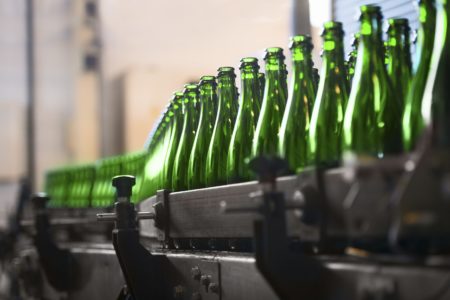Several waste management groups in Scotland have reacted with concern to the Scottish government’s plans for an ‘all in’ deposit return scheme (DRS).
However, others said they welcome the ambitions shown in the plans and will support the scheme if conditions are met.
As reported by letsrecycle.com last week, Scotland’s cabinet secretary for the environment, Roseanna Cunningham, outlined the DRS plans, which centre on a model which will include all PET plastic drinks bottles, aluminium and steel cans and glass bottles – with a deposit level set at 20p.
She told MSPs that the DRS would be overseen by a not-for-profit organisation which will be set up by soft drinks producers and retailers. All retailers selling drinks to consumers will be required to participate in the DRS (see letsrecycle.com story).
‘Jumping the gun’
However, the Scottish government was accused of “jumping the gun” by the Scottish Environmental Services Association (SESA), who said the idea of a UK-wide system is now unlikely.
“We see considerable merit in a well devised and properly implemented deposit return scheme but are disappointed that the announced scheme bears little resemblance to the common, cross-cutting views expressed by many different sectors through last year’s public consultation,” SESA policy advisor, Stephen Freeland, explained.
Mr Freeland added: “We suspect that the Scottish Government has missed a trick: a scheme focused on ‘on the go’ drinks containers would target those containers most likely to be discarded as litter, while limiting the negative impacts on Scotland’s existing, well established kerbside collections systems.
“It is clearly unfortunate that the Scottish Government has opted to go it alone, with a single-UK wide scheme now a distant prospect. This is likely to increase scheme costs, reduce efficiencies and increase the likelihood of fraud.”
Stephen Freeland
SESA
“It is clearly unfortunate that the Scottish Government has opted to go it alone, with a single-UK wide scheme now a distant prospect. This is likely to increase scheme costs, reduce efficiencies and increase the likelihood of fraud.”
Other sectors within the industry echoed concern expressed by SESA, including British Glass, who said the proposals will damage glass manufacturing.
The Scottish government announced consultations for a DRS – which it hopes to implement next year – in June 2018, eight months before the UK.
During discussions, many industry figures had expressed concerns over fraud (bottles being brought in from south of the border), and also cost and health and safety issues around glass.
‘Damaging’
Trade association for the glass industry, British Glass, has warned of the “damaging consequences” of the plans on the UK glass manufacturing sector.
British Glass’ chief executive Dave Dalton said: “We have been warning for a long time that the system will have damaging consequences for the UK glass manufacturing sector. The UK sector has led moves to increase recycling through investments in infrastructure and communications.”
Mr Dalton added: “Including glass in the proposed DRS will undermine these efforts, increase cost and reduce the amount of glass recycled into new containers. The DRS plans will derail the high levels of recycling already achieved through the existing systems.
“That is not to say that we are happy with the recycling rate and are resting on our laurels. We fully recognise there is further work to be done to increase recycling of glass containers – but the DRS is not the way forward and will result in less recycling and more glass being disposed of via landfill or incineration.”
Export
Elsewhere, Viridor – which says it has invested £477m in Scotland over the past five years – issued a statement explaining that it welcomes the ambition shown in the proposals, but concerns remain over the export market.
A Viridor spokesperson said: “We would like to see the Scottish Government introduce a scheme with an administrator who is tasked with ensuring this valuable resource is retained by Scotland for reprocessing within Scotland and reintroduced to the country’s economy. This would allow Scottish residents to see the circular economy in action.”
Viridor confirmed that, “if conditions were appropriate”, it stood ready to invest further in Scottish reprocessing with a focus on polymers and its continuing investment of glass recycling which is centred around the £25m Newhouse glass facility and so closely aligned with sectors such as the Scottish bottle manufacturing and whisky industry.
Its anticipated that legislation around a DRS will be introduced mandating the scheme later this year, enabling a DRS in Scotland to come into effect in 2020.
‘Adverse behaviours’
Among those also welcoming the proposals were David Palmer Jones, chief executive of SUEZ recycling and recovery UK, who was impressed with the level of ambition but also expressed concerns in how it will fit in with other changes happening at the moment.
Mr Palmer-Jones added: “We agree with the DRS system being led by retail take-back but are concerned that including such a wide range of items will mean that many smaller retailers will not have the secure storage space necessary for their participation. The 20p deposit level may drive adverse behaviours by encouraging some to scavenge materials from bins and other containers. From our research we believe a deposit level of 10p can deliver the right recycling behaviour response.”
The post Concerns raised over Scotland’s DRS proposals appeared first on letsrecycle.com.
Source: letsrecycle.com Plastic





